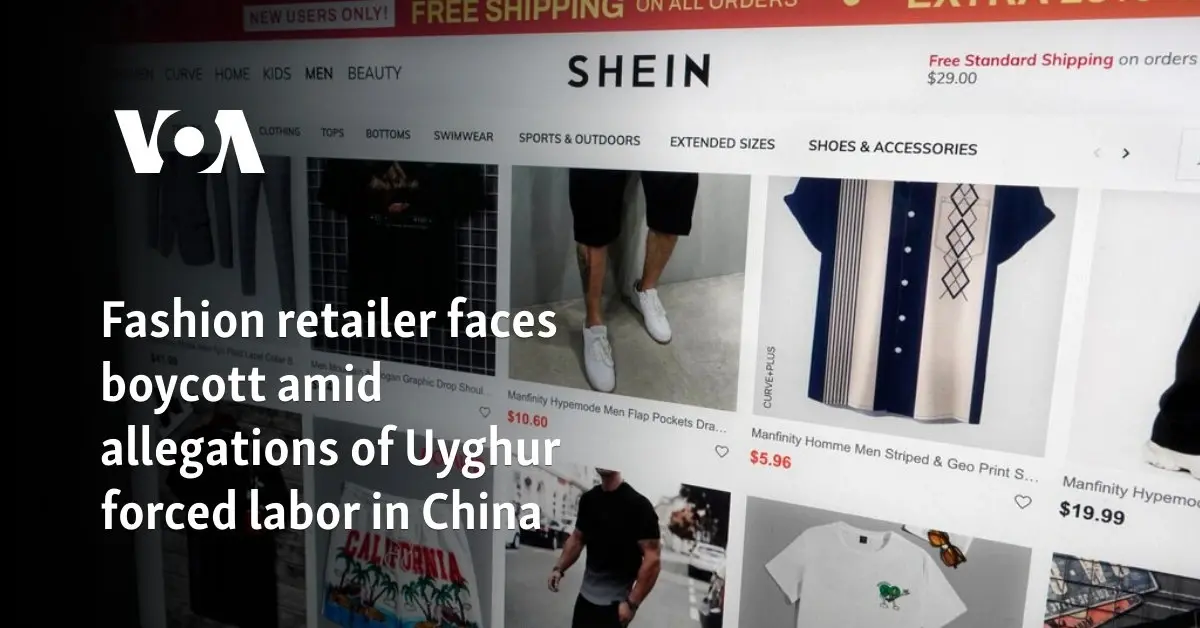Arslan Hidayat, head of the Save Uyghur campaign, says Shein’s alleged use of forced labor exacerbates oppression of the Uyghur people.
“It is crucial for Muslims to use their consumer power to protest against the use of forced labor and to demonstrate solidarity with the Uyghur community,” Hidayat told VOA. “It is incumbent upon us to prioritize ethical consumption practices and advocate for justice for the Uyghur people.”
Concerns surrounding Shein’s sourcing practices extend to its use of Xinjiang cotton. Bloomberg’s laboratory tests conducted in November 2022 revealed that Shein’s clothing contains fibers sourced from Xinjiang cotton, which is prohibited in the U.S. under the Uyghur Forced Labor Prevention Act, enacted in June 2022.
The law prohibits imports from Xinjiang and goods manufactured by Uyghurs allegedly coerced into working for minimal wages, unless companies can demonstrate the absence of forced labor.
Despite U.S. bans on Xinjiang imports, Shein’s shipments often evade scrutiny through the de minimis rule, which exempts packages under $800 from customs inspections, enabling them to enter the U.S. without thorough examination.
Bipartisan leaders of a congressional committee focused on the Chinese Communist Party have called on the Biden administration to enhance efforts against imports linked to Chinese forced labor, urging closure of trade loopholes utilized by e-commerce giants such as Shein and Temu.


